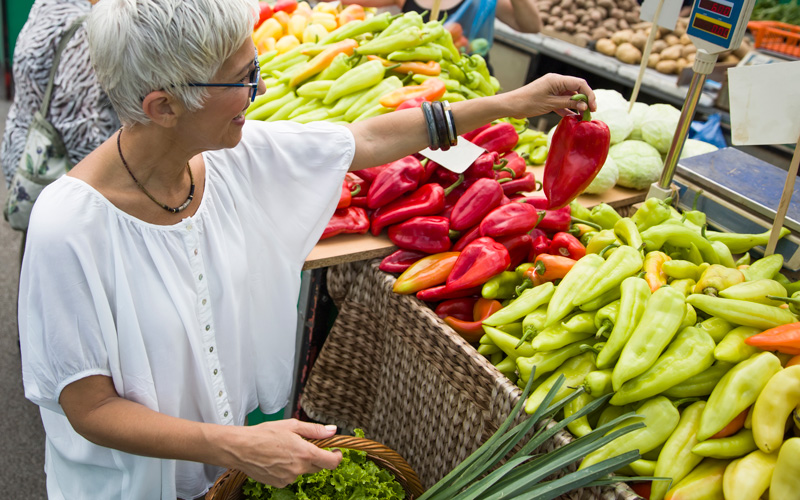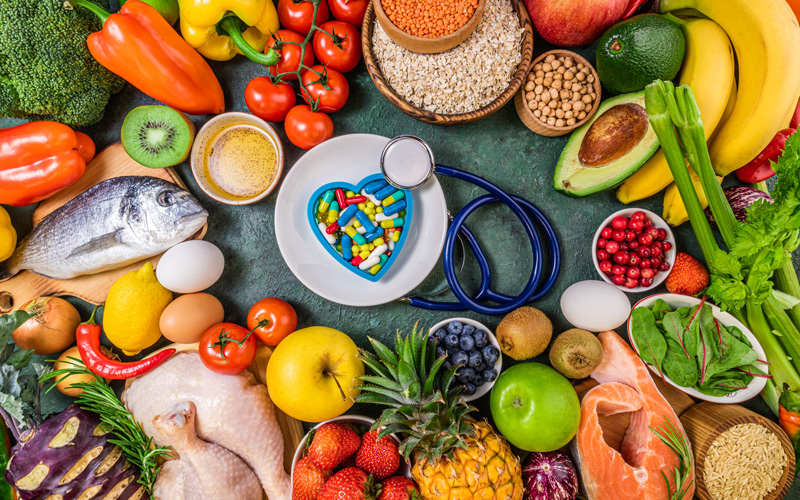
Seasonal Eating
What is seasonal eating, and why is it good for me?
Seasonal eating is the practice of consuming food that is produced during its natural growing period for the region where it is produced. As the seasons change, so does the volume of produce available to us. Thanks to the health and environmental benefits, seasonal eating is rising in popularity.
Benefits of seasonal eating:
More Nutritious, More Flavor–Food that is produced in its natural growing period is harvested and eaten at peak ripeness, meaning that it’s fresher, retains more nutrients, and tastes better! For example, winter is the time for hearty produce like citric fruits and root vegetables (aka oranges, lemons, ginger, onion), while summer is the time for bright, water-rich produce (think berries, melons, tomatoes, and zucchini). Out of season produce may contain more pesticides and preservatives to help them last longer. And the vitamin content of produce degrades with storage, so consuming closer to harvest has nutritional benefits.
Sustainability–Eating seasonally is a win for your health and the planet. Seasonal eating can reduce the carbon footprint of the foods consumed, because there is less need for things like transportation and refrigeration. On top of that, it promotes healthier ecosystems because fewer pesticides and fertilizers are used in the farming process. When foods are consumed in their natural growing period, chemicals are not needed. If you’re looking for a more sustainable approach to eating, this might be right for you!
Saves Money–But wait, there’s more (for less 😊) What if I told you that eating seasonally is actually better for your budget? Yep, you get the nutrients, the flavor, the comfort of supporting the environment, all while saving money. In-season produce is typically available in abundance and is therefore cheaper (per the law of supply and demand). Out-of-season foods are often grown in greenhouses or are imported from areas of differing climates, which drives up the cost for us.
Speaking of cost…
Frozen Foods–I know what you’re probably thinking, “Frozen?! Didn’t I just read all about freshness and refrigeration and preservatives?” And yes, you did. But let’s be realistic here – the cost of groceries adds up, whether you’re eating seasonally or not. A diet high in fruits and vegetables is the underlying emphasis of this blog. So if eating seasonally isn’t an option for you, frozen fruits and vegetables are a great alternative. Their nutritional profile is similar to that of fresh produce, thanks to a process called “flash-freezing” which preserves nutrients without the harsh chemicals. And, frozen foods are easy on the bank, so you can still prioritize your health without worrying about the cost
Tips for Eating Seasonally
Are you ready to start eating seasonally? Here are some tips to help you get started:
- Familiarize yourself with seasonal produce. Save the chart above as a reference to check what’s in season.
- Check out your local Farmer’s Market. This is one of the best ways to access seasonal foods. And typically, the produce is harvested just hours or days before, so you get the freshest pick. Farmer’s Markets are also a great way to support local farmers and connect with the source of your food.
- Get creative in the kitchen! When you practice seasonal eating, you may begin to embrace the natural cycles of foods. This can add a fun sense of variety and excitement to meals throughout the year.
- Preserve the bounty. One of the perks of eating seasonally is the abundance of certain foods, and you can take advantage of this by preserving it for later seasons. Learning how to freeze, can, and/or pickle seasonal fruits and vegetables allows you to enjoy them even after their growing season.
How is this different from eating locally?
Eating seasonally does not necessarily mean eating locally, although it is a great option if you have access to local produce! “Local food” is shaped by the specific communities where food is produced and consumed. “Seasonal food” has to do with the natural growing season of food without the use of greenhouses. While eating locally is a great practice, it may not be a possibility for you depending on the climate where you live; you can still reap the benefits from choosing in-season foods!







